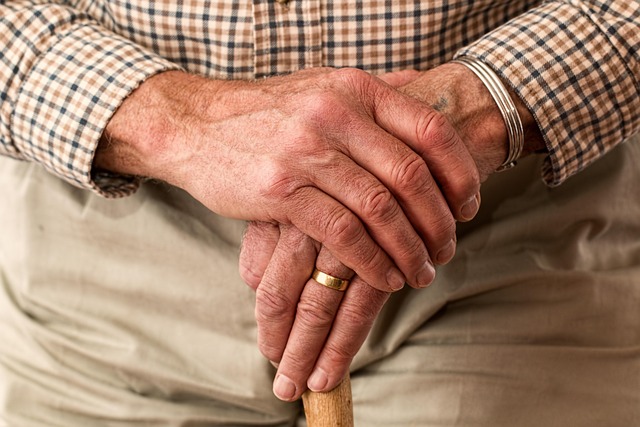Elderly Companion Services are essential for seniors wanting to age comfortably at home. They offer tailored assistance with daily tasks, preserving independence, and provide emotional support through conversation, games, and companionship, alleviating loneliness and boosting mental health. These services also ensure home safety and accessibility features, contributing to improved quality of life. Hiring through specialized Elderly Companion Services provides reliable, trained professionals who cater to individual needs, offering clear communication, structured routines, regular check-ins, and peace of mind for seniors and their families.
Providing in-home care for elderly loved ones is a compassionate and practical solution, allowing them to age comfortably in familiar surroundings. This article explores elderly companion services, highlighting their vital role in enhancing quality of life. We delve into creating supportive home environments, navigating care options, and hiring trustworthy caregivers. Understanding these aspects empowers families to make informed decisions, ensuring the best possible care for their aging relatives. Elderly Companion Services emerge as a key resource, offering peace of mind and improved well-being.
- Understanding Elderly Companion Services: The Role and Benefits
- Creating a Supportive In-Home Environment for Elderly Individuals
- Navigating Care Options: Hiring and Managing In-Home Caregivers
Understanding Elderly Companion Services: The Role and Benefits

Elderly Companion Services play a vital role in supporting and enhancing the lives of seniors who prefer to age in the comfort of their homes. These services are designed to provide companionship, assistance, and care tailored to each individual’s unique needs. Companions can help with daily tasks like cooking meals, cleaning, grocery shopping, and even personal care, ensuring elderly folks maintain their independence.
Beyond practical support, Elderly Companion Services offer emotional and social benefits. Companions engage in meaningful conversations, play games, or simply spend time with the senior, alleviating feelings of loneliness and isolation. This companionship can significantly improve overall well-being, boost mental health, and foster a sense of security and belonging for the elderly individual.
Creating a Supportive In-Home Environment for Elderly Individuals

Creating a supportive in-home environment is essential for promoting the well-being and independence of elderly individuals. Elderly companion services play a crucial role in achieving this by providing not just physical assistance, but also emotional support. Caregivers can enhance the home setting by ensuring it’s safe, accessible, and stimulating. This includes installing grab bars in bathrooms, adding non-slip mats to prevent falls, and organizing living spaces for easy navigation.
Additionally, fostering a sense of community and connection is vital. Companion services often involve engaging elderly folks in conversations, encouraging social interactions with neighbors or family members, and participating in activities that align with their interests. These measures help alleviate feelings of loneliness and isolation, enhancing overall satisfaction and quality of life for the elderly individual in their own home.
Navigating Care Options: Hiring and Managing In-Home Caregivers

When considering in-home care for elderly loved ones, navigating care options can seem daunting. One popular choice is hiring an in-home caregiver through specialized companion services. These services provide trained professionals who offer a range of assistance tailored to individual needs. From helping with daily tasks like cooking and cleaning to providing companionship and emotional support, Elderly Companion Services ensure seniors stay safe and comfortable in their own homes.
Managing these caregivers involves clear communication and careful planning. Setting regular check-ins, establishing specific care protocols, and ensuring proper training are crucial steps. Many families also find it helpful to create a structured routine for the caregiver, aligning with their loved one’s preferences and needs. This collaborative approach ensures quality care while fostering a sense of security and peace of mind for both the elderly individual and their family.
As we’ve explored, providing in-home care for elderly loved ones is a compassionate and practical solution, offering both quality of life improvements and peace of mind. By understanding the role and benefits of elderly companion services, creating a supportive environment, and navigating care options effectively, you can ensure your seniors receive the best possible care in the comfort of their own homes. Remember, choosing the right in-home care can be a game-changer for both caregivers and the elderly, fostering a symphony of support and independence.
